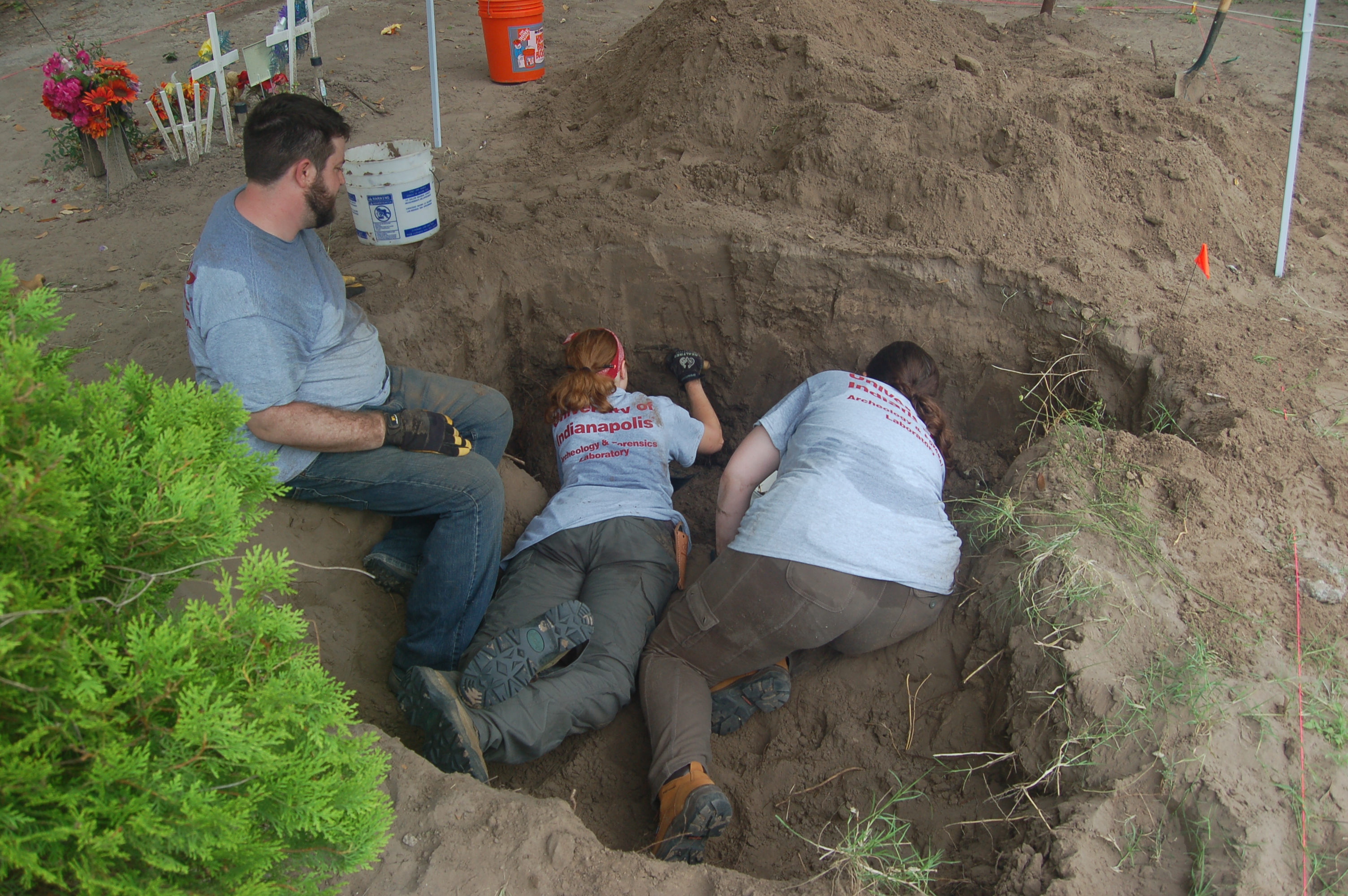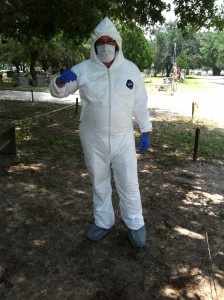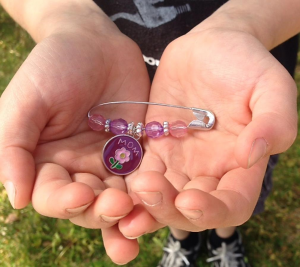Our team has worked together previously on cases, on projects and on presentations. But never like in Falfurrias. We work with unidentified human remains, and we do it not because we like it (we do) but because there is nothing else we would ever want to do. And most of us would have a difficult time explaining why, exactly, this type of work means so much to us.
Still, with the experiences we’ve had, we were wholly unprepared for Texas last year. The heat to start. It was over a 100° easily, every day. Then there was the sun that banished all the clouds that might have offered a respite. I don’t remember any clouds in Texas. Definitely just sun. But it was the humidity that did us in. Isn’t Texas supposed to be dry?
Additionally, our team had not worked a case of this magnitude either. Indiana has primarily individual casework. Our human rights mission in Falfurrias was quite a bit larger. We were expecting it and we were prepared for it, along with the intensive work that comes with it.
 From this point, I can tell you about our strategy last year. Or perhaps measures we took to overcome the climate. I can tell you about some of the things that changed us in the short time we were there. I can tell you more about the climate, and perhaps something about what the migrants crossing the area on foot might have encountered. But I want to tell you about our team, because they amazed me.
From this point, I can tell you about our strategy last year. Or perhaps measures we took to overcome the climate. I can tell you about some of the things that changed us in the short time we were there. I can tell you more about the climate, and perhaps something about what the migrants crossing the area on foot might have encountered. But I want to tell you about our team, because they amazed me.
They amazed me because of the commitment (though the word seems inadequate) and the energy that was given every day, to every burial we encountered. I know how much and what this work means to me, and now I have an inkling of how much it means to all of us.
Get out of the hole!
I’ve got to tell you, traveling and working with five type-A personalities is rarely a pleasure. Everyone has an opinion, but I’m always right (just kidding—sometimes). If they’d just listen we could do this faster. That is typically what you encounter and observe, just a group butting heads. How in the world can they work together, let alone be efficient, speedy, and thorough?
That was one of my biggest concerns last year. Not only would we be working together in volatile conditions, but also living together, with no escape for ten days. A case in Indiana would last a day, maybe two, but everyone could go home after or to class, or to work. Not so in Texas. I was sure this trip was going to be interesting, in more ways than one.
Seriously, get out. Get some water. Sit down. Get out!
The tone was set for us immediately the first day we arrived at the Cemetery. Justin was a great leader in this regard (he always is, but shhh! don’t tell him!). Remember the heat and humidity I mentioned? It started well before 6 a.m., and only increased throughout the day. We were even told we couldn’t work past noon because the heat got so bad. We usually pushed that “suggestion” to around two without fail, everyday. How could you stop working when you can see the casket and know that if we can just get this last individual out for the day, that’s one more person that can start the identification process? Seriously.
 Back to the climate, Justin was our voice of reason, which may be the best way to put it. If we would have worked like we do in Indiana, we would have passed out from heat exhaustion or heat stroke. He was the first one to start yelling at us all to take breaks.
Back to the climate, Justin was our voice of reason, which may be the best way to put it. If we would have worked like we do in Indiana, we would have passed out from heat exhaustion or heat stroke. He was the first one to start yelling at us all to take breaks.
We realized very quickly that we needed a work rotation, in which everyone worked 10 to 15 minutes and switched out. That 10 to 15 minutes may seem so little, but in the humidity our energy and hydration levels plummeted. We drank Gatorade during these forced rest periods in order to replenish the mass quantities of fluids we didn’t realize were just floating off us, or running down our shirts.
By the end of the first day, we were all insistent about that imposed break for whoever was digging. Such a simple thing, but yet another factor that pushed us together so seamlessly. I wouldn’t trade this experience or the team for any other.
 But five more minutes, that’s all, then I’ll switch out… I’m so close!
But five more minutes, that’s all, then I’ll switch out… I’m so close!
That never worked.

